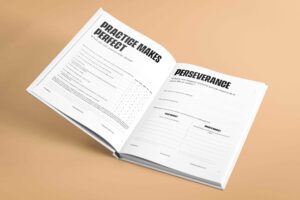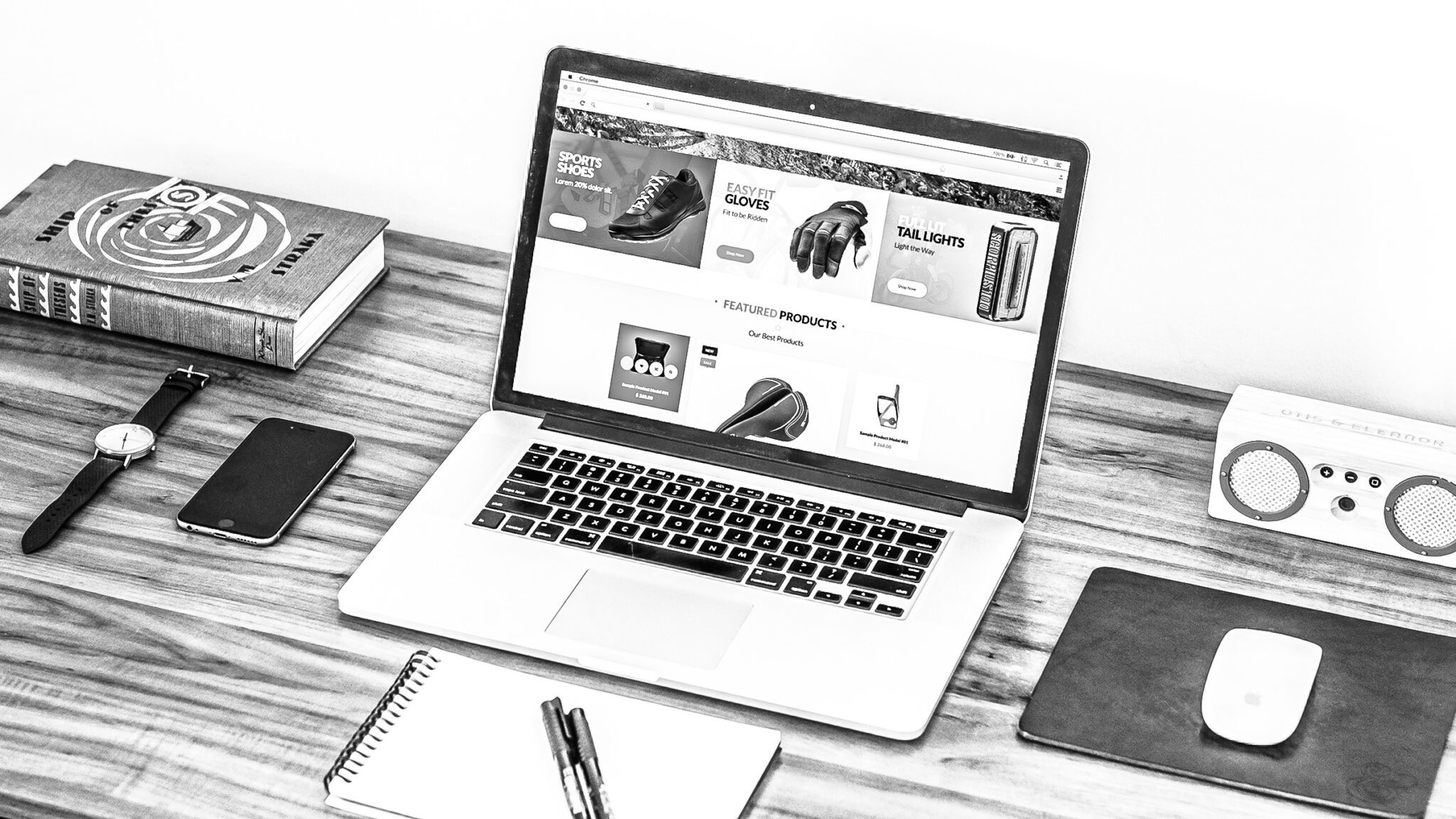Let’s start by saying building a strong personal brand is more important than ever in today’s digital age. This blog explores expert tips on defining your brand, creating a professional online presence, providing value to your audience, and building relationships to establish yourself as a thought leader in your industry.
Why is Branding Yourself Important?
At Creatitive, we always preach branding is not just for companies and products but also high-priority for individuals. Branding yourself is a way to market your own personal brand and communicate your unique value in your professional life. Personal branding can help you stand out from the crowd, build your reputation, and achieve your career goals. Here are just four reasons why self-branding is a game-changer:
- Differentiation: Branding yourself helps you differentiate yourself from others in your niche. Your unique brand can help you attract the attention of potential employers, prospective clients, or customers.
- Credibility: Personal branding helps you build credibility and trust with your audience. You can become a go-to source in your field by consistently delivering high-quality content and communicating your values.
- Career Advancement: Personal branding can help you advance your career by increasing your visibility, attracting new opportunities, and establishing yourself as a thought leader in your industry.
- Increased Confidence: When you have a strong personal brand, you feel more confident about yourself and your abilities. This increased confidence can lead to better performance and more significant achievements.
How to Brand Yourself
Now that you know why branding yourself is important, let’s discuss the how-to. Building a personal brand is an ongoing process that involves defining your unique value proposition, creating a consistent brand voice, and a self-promotion strategy across multiple channels.
Learn Seven Steps to Brand Yourself Effectively:
- Define your target audience: You must know exactly who you’re targeting. Identify your ideal audience and understand their needs, wants, and pain points.
- Develop your brand voice: Your brand voice is the tone and personality that you use to communicate with your audience. Develop a brand voice that aligns with your values and resonates with your target audience.
- Create a personal website: Your personal website is your digital home base. It’s where you showcase your work, share your story, and connect with your audience. Make sure your website is easy to navigate, visually appealing and reflects your personal brand.
- Build a strong online presence: In today’s digital age, having a basic online presence is not enough. You should be active on multiple online platforms, including social media, blogs, and video channels. Consistently create and share content that reflects your personal brand and resonates with your target audience.
- Develop a personal branding strategy: A personal branding strategy is a roadmap for how you will build and promote your brand. It should include your goals, target audience, brand voice, messaging, and tactics for promoting your brand across multiple channels.
- Create content: Creating content is a powerful way to build your personal brand and generate brand awareness. Write articles, blog posts, or create videos that showcase your expertise and align with your personal brand.
- Network with other professionals: Networking with other like-minded individuals in your industry or field can help you build relationships, gain exposure, and create new opportunities. Attend conferences and speaking engagements or join industry associations to connect with relevant people.
Best Tips For Personal Branding
Before reading our tips, free download our personal branding quiz to get a deep understanding of your personal brand and level up your credibility.
Personal Branding
Best Tips For Branding Yourself and Building a Strong Personal Brand
- Be Authentic: Your personal brand should reflect who you are, not who you think you should be. Be authentic and true to yourself, and your audience will appreciate it.
- Use a Professional Photo: A professional photo on your website, social media, or other online profiles can help you create a positive first impression and build trust. Define Your Core Values: Your personal brand should be built around your core values. Identify your most important values and integrate them into your brand messaging.
- Get a logo: A personal brand logo can make a memorable first impression on your potential customers and clients.
- Consistency is Key: Consistency is essential when it comes to branding yourself. Use the same brand voice, colors, and messaging across all your online and offline channels.
- Focus on Quality Results: To build a strong personal brand and consistently deliver high-quality results. Your work should speak for itself and reflect your personal brand.
- Step Out of Your Comfort Zone: To build a successful personal brand, you must be willing to take risks and step out of your comfort zone. This could mean trying new things, experimenting with different marketing tactics, or taking on new challenges.
- Keep Learning: The world is constantly evolving, and so should your personal brand. Stay up-to-date with the latest trends, technologies, and best practices in your industry or field.
Best-in-Class Personal Branding Examples
We have dedicated an entire blog to showcase the most successful personal brand examples. Use it to garner inspiration, get your creative juices flowing, and develop innovative ideas to level up your personal branding strategy. By the moment, let’s jump into three personal branding examples that inspire high-achievers and thought leaders:
Gary Vaynerchuk
Gary Vaynerchuk is a serial entrepreneur, author, and speaker who has built a strong personal brand around his marketing and social media expertise.
Marie Forleo
Marie Forleo is a business coach, author, and speaker who has built a successful personal brand around her tagline, “Everything is figureoutable.”
Neil Patel
Neil Patel is a digital marketing expert who has built a strong personal brand around his SEO and content marketing expertise.
Best Way to Brand Yourself on LinkedIn
LinkedIn is a great example of branding yourself professionally. Whether you want to become a public figure or stand out from your competitors, consider joining Linkedin communities to level up your personal brand. You can tap into the written content on Linkedin to connect with a potential client or people interested in your expertise.
Remember: Linkedin is all about building long-lasting relationships. Watch completely this video to get the 5-Branding Tips to Improve Your Community on Linkedin:
At this point, you may already have a Youtube Channel to spread your brand message. But try out expanding your audience on Linkedin, and let’s see how it works. Now, let’s jump into the starting point on Linked. If you have never used it before, learn how to build a strong brand on Linkedin.
Incorporate these 5-Tips for Branding Yourself on LinkedIn:
Optimize your LinkedIn profile: Your LinkedIn profile is your online resume. Make sure it’s complete, up-to-date, and reflects your personal brand. As Neil Patel says,
“Your LinkedIn profile is one of the first things people will see when they search for you online. Make sure it’s professional and reflective of your personal brand.”
Create valuable content: Share valuable content on LinkedIn that aligns with your personal brand and resonates with your target audience. As Chris Do says,
“Your content should be relevant, educational, and entertaining. It should also reflect your unique perspective and expertise.”
Engage with your network: Engage with your network on LinkedIn by commenting on their posts, sharing their content, and sending them personalized messages. As Tony Robbins says,
“Engagement is the key to building strong relationships and establishing yourself as a thought leader in your industry.”
Join relevant groups: Join LinkedIn groups related to your industry or field and engage with other members to build relationships and establish yourself as an expert. As Gary Vaynerchuk says,
“Join groups that align with your interests and engage in conversations to build your credibility and grow your network.”
Showcase your achievements: Use LinkedIn to showcase your achievements, such as awards, publications, or certifications, and build credibility with your audience. As Neil Patel says,
“Your achievements are a reflection of your expertise and can help you establish yourself as a thought leader in your industry.”
Contact Us for Personal Branding Assistance
At our branding agency, we specialize in helping individuals and companies build strong personal brands that resonate with their target audience. Contact us today to learn more about our services and how we can help you build a successful personal brand.
Conclusion
In today’s competitive world, branding yourself is more important than ever. A strong personal brand can help you stand out from the crowd, build credibility, and achieve your career goals. By following the seven steps to brand yourself effectively and incorporating the tips and examples we’ve provided, you can create a personal brand that reflects your unique value proposition and resonates with your target audience. So start building your personal brand today and take your career to the next level.
FAQs
What Makes a Strong Personal Brand?
A strong personal brand is built on authenticity, consistency, and clarity. As Tony Robbins, a well-known author and speaker, says,
“Your personal brand is a promise to your clients…a promise of quality, consistency, competency, and reliability.”
To build a strong personal brand, you need to define your target audience, develop your brand voice, create a personal website, build a strong online presence, develop a personal branding strategy, create content, and network with other professionals. As Chris Do, founder and CEO of The Futur, says, “Your brand is the story that connects your purpose to your target audience.”
Is It Good to Rebrand Yourself?
Rebranding yourself can be a good idea if you want to update your image, refocus your career, or reach a new target audience. However, rebranding should be done carefully and strategically to avoid confusing your existing audience and damaging your reputation. As Gary Vaynerchuk, an entrepreneur and author, says,
“People rebrand because they want to evolve with their audience, their business, and their life.”
Before rebranding, conduct market research, define your new target audience, develop your new brand voice and messaging, and create a plan for communicating your rebrand to your audience.
What’s the Implication of Branding Yourself in Business?
Branding yourself in business can have several implications. A strong personal brand can help you build credibility, establish yourself as an expert, and attract new opportunities. It can also help you differentiate yourself from others in your industry or field and build stronger relationships with potential customers, clients, or employers. As Neil Patel, a digital marketing expert, says,
“Your personal brand is what sets you apart from others in your industry or niche.”
Best Way to Brand Yourself on Google
Branding yourself on Google involves creating a strong online presence and promoting your personal brand across multiple channels.
Best Tips to Self Branding on Google:
- Create a personal website: Your personal website is your digital home base. Make sure it’s optimized for search engines and reflects your personal brand. As Gary Vaynerchuk says, “Your website is your personal brand hub. Make sure it’s easy to navigate, visually appealing, and reflective of your personal brand.”
- Use social media: Social media platforms like LinkedIn, Twitter, and Facebook can help you promote your personal brand and engage with your target audience. As Tony Robbins says, “Social media is a powerful tool for building your personal brand and establishing yourself as a thought leader in your industry.”
- Create valuable content: Creating valuable content such as blog posts, articles, or videos can help you build your personal brand and generate brand awareness. As Chris Do says, “Your content should be authentic, educational, and reflective of your personal brand.”
- Guest post on other websites: Guest posting on other websites related to your industry or field can help you reach new audiences and establish yourself as an expert. As Neil Patel says, “Guest posting is a great way to build your personal brand and generate traffic to your website.”
- Monitor your online reputation: Monitor your online reputation regularly and respond to negative feedback or reviews to protect your brand. As Gary Vaynerchuk says, “Your online reputation is your most valuable asset. Ensure you monitor it regularly and respond to any issues or concerns.”
By incorporating these tips from relevant authors and experts, you can build a strong personal brand that resonates with your target audience and helps you achieve your career goals.








